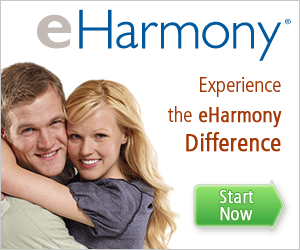I know, I know: you’ve heard this one before. There’s been a missed deadline, or two, or three, or more, but eHarmony is actually officially launching its job-matching tool.
“This has been a long time coming,” says eHarmony’s GM Dan Erickson. “For me a long time coming.”
With the launch three years in the making, you can’t blame the company for launching its “Elevated Careers” with much fanfare. The fanfare: an analyst meeting; a press conference in Los Angeles; a launch party; a launch hashtag (#ecbelaunch), and strikingly, more big-name analysts in the recruiting/HR field in one room than I’ve ever seen, showing up this week to the 17th floor of the west Los Angeles building this week where eHarmony resides, overlooking the Getty and West LA.
Those analysts and consultants and commentators include Trish MacFarlane, Robin Erickson, Madeline Laurano, Kyle Lagunas, and more, including some who advise eHarmony, like Dwayne Lay, China Gorman, Mira Greenland, William Tincup, eHarmony’s PR pro/marketer/launch organizer Crystal Miller, and more. Others like staffer/blogger Tim Sackett made it to eHarmony’s Wednesday night party, where sugar was not in short supply (see photo).
Another 15 analysts are meeting with eHarmony in about a month. After that, there might be another 15 at a third meeting.
 Anyhow, to sum up where we’re at in a nutshell, eHarmony (more here: FAQs and how it works) is matching people with jobs based on skills through a partnership with Burning Glass, as well as personality (competitiveness, integrity, intellect, leadership, peacefulness, emotional stability, ambition, and more), as well as how well people fit with 16 aspects of company culture (e.g. “balanced,” “cohesive,” “trusting,” “promoting,”, “daily perks,” “social,” “communicative,” “stable,” and more). That’s the upshot: skills, personality, culture.
Anyhow, to sum up where we’re at in a nutshell, eHarmony (more here: FAQs and how it works) is matching people with jobs based on skills through a partnership with Burning Glass, as well as personality (competitiveness, integrity, intellect, leadership, peacefulness, emotional stability, ambition, and more), as well as how well people fit with 16 aspects of company culture (e.g. “balanced,” “cohesive,” “trusting,” “promoting,”, “daily perks,” “social,” “communicative,” “stable,” and more). That’s the upshot: skills, personality, culture.
People are given percentage scores. Regarding personality, perhaps candidates fit “ambition” a lot but “competitiveness” not so much. This fit is measured between a job candidate and a manager, presumably their future manager, or whichever manager the recruiter who filled this all out associates with this job.
 And regarding culture, perhaps a person is 91 percent compatible with a company’s culture in terms of the importance of social responsibility at the company. Maybe they’re a 10 percent match on predictability — the importance of whether the company’s workdays are kinda what you expect, or will throw you for a loop.
And regarding culture, perhaps a person is 91 percent compatible with a company’s culture in terms of the importance of social responsibility at the company. Maybe they’re a 10 percent match on predictability — the importance of whether the company’s workdays are kinda what you expect, or will throw you for a loop.
Interestingly, on that culture part, eHarmony VP of Matching (what a title!) Steve Carter believes companies should have, and are more successful when they have, a fairly homogeneous, consistent culture profile.
That doesn’t mean everyone’s the same, or has the same personality. It means, at least within a particular city, they value certain things, like innovation, or the importance of people self-managing.
So your Houston branch, or branches, might have similar values, and the Chicago one different values. For some companies it works very closely with, eHarmony is able to identify distinct cultures within the company; it works with AT&T and has observed different cultures within the company, from corporate to retail. But Carter and eHarmony generally believe that if innovation, to stay on that example, is your biggest value, hiring someone who doesn’t fit that value is a bad thing.
Anyhow, job seekers get a compatibility measure, and are emailed compatible jobs (like with the dating tool). They can review their predicted job satisfaction for a given job, and then apply for a job, or save it to apply later.
They can also see their compatibility with their current company; of course, this is for those currently employed. Companies, in turn, can see to what degree their current employees are aligned with the company’s desired culture. Say the company really values “communicative” types; do its employees value that, too?
eHarmony has tested its tool with early adopters, people who want to do a beta, and companies it has close relationships with. Companies on that list include American Airlines, CA Technologies, HomeAway, Dovetail Software and the aforementioned AT&T. (Veterans groups may be interested too; another recent visitor to eHarmony’s office: an Army undersecretary in the U.S. talking about matching veterans with jobs.)
From talking to the analysts above and others, I’d say the general consensus on eHarmony is this: it has come a long way from its original plans, has a good brand behind it and access to some money (though it has to make the case to the parent company for using it), and, I’d say, the analysts are generally cautiously bullish. Partly this is a Dan Erickson thing. Unlike what you find with some “We’re taking over the world!” startup heads, he has spent a lot of time changing, refining, changing more, listening more, and admitting mistakes.
One analyst tells me that with an endless number of job boards and recruiting-technology tools, eHarmony’s future may be less as a job site and more as a tool to help companies see what their culture is really like (versus what the employer thinks it is or wishes it was). Ultimately we’ll see who gets hired by using eHarmony, their tenure, and perhaps the quality of hire. The company says its dating site has resulted in 438 marriages each day, and that those marriages last longer than others.
